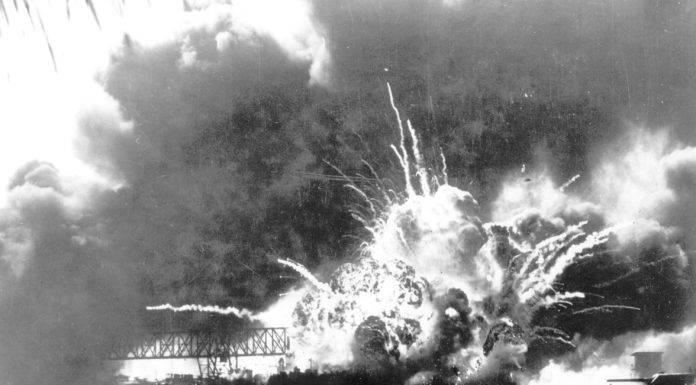(Ken Silva, Headline USA) The FBI finally released its Pearl Harbor file on Monday, showing that the bureau was monitoring phone calls between Hawaii and Japan ahead of the Dec. 7, 1941, attack.
The records, which remain heavily redacted more than 80 years after the fact, also show that the FBI investigated—but found no evidence of—subversive activities by Japanese people living in Hawaii before and after Pearl Harbor.
According to the records, the FBI began a surveillance operation in Hawaii in August 1941, after the U.S. ceased oil exports to Japan and after commercial vessels stopped travelling between the islands.
“In order that the Honolulu field division may be advised more fully of Japanese activities, it is deemed necessary that a technical surveillance be established on all trans-Pacific telephone communications between the territory of Hawaii and Japan,” Special Agent in Charge R.L. Shivers said in an Aug. 23, 1941, memo.
“Through confidential contacts [REDACTED] arrangements may be made for the installation of this service.”
By November, the FBI’s surveillance was up and running, according to a Nov. 10, 1941, memo from Shivers to then-FBI Director J. Edgar Hoover.
“This is to advise that a technical surveillance was established [REDACTED],” Shivers told Hoover.
“Through confidential informants of this office, arrangements were made to have connections made at the [REDACTED] by means of a [REDACTED] circuit between Hawaii and Japan.”
For the next couple of weeks, agents in Hawaii logged their surveillance of calls made to and from Japan.
However, most of those records remain redacted. For instance, one log on Nov. 17, 1941, states: “On [REDACTED], a call was intercepted [REDACTED].”
One unredacted record does mention that the FBI believed there was heavy censorship in Japan. Then-FBI Special Agent George Allen said he interviewed an American passenger who arrived from Japan on Nov. 1, 1941. That passenger said all calls out of Japan must be made in Japanese—and that operators were monitoring calls to enforce that rule, according to Allen.
The FBI’s monitoring of calls obviously didn’t prevent Japan from attacking Pearl Harbor—killing 2,403 Americans, and destroying four battleships and numerous other vessels. Subsequent research has found that President Franklin Roosevelt had foreknowledge, and likely provoked, the Pearl Harbor attack so that the U.S. could enter World War 2.
After the attack, the FBI was tasked with investigating Japanese citizens in Hawaii for allegedly plotting against America.
However, the FBI found no evidence of this.
In fact, the bureau blasted Navy Secretary Frank Knox for lying to the American public in the wake of the attack, when he said that “fifth column activity in Hawaii is the most effective that has come out of this war except Norway.” “Fifth column activity” was a reference to German or Japanese citizens in America plotting subversive activities.
“I advised the Bureau in the telegram of December 15, 1941, that this statement mas false in the main and highly exaggerated in last, as there had been no instances of sabotage subsequent to the Japanese air raid on the morning of December 7, 1947,” Shivers said in a Dec. 26, 1941, memo—referencing the public statement made by Knox.
“There have been many reports of sabotage which, when investigated, proved to be false and without foundation,” he said.
“It is realized, of course, that there will probably be acts of sabotage committed of the super-patriotic Japanese nationals, but every effort in tow being made in an investigative way to deprive such individuals of the means and material for committing these acts,” he added.
Ken Silva is a staff writer at Headline USA. Follow him at twitter.com/jd_cashless.

